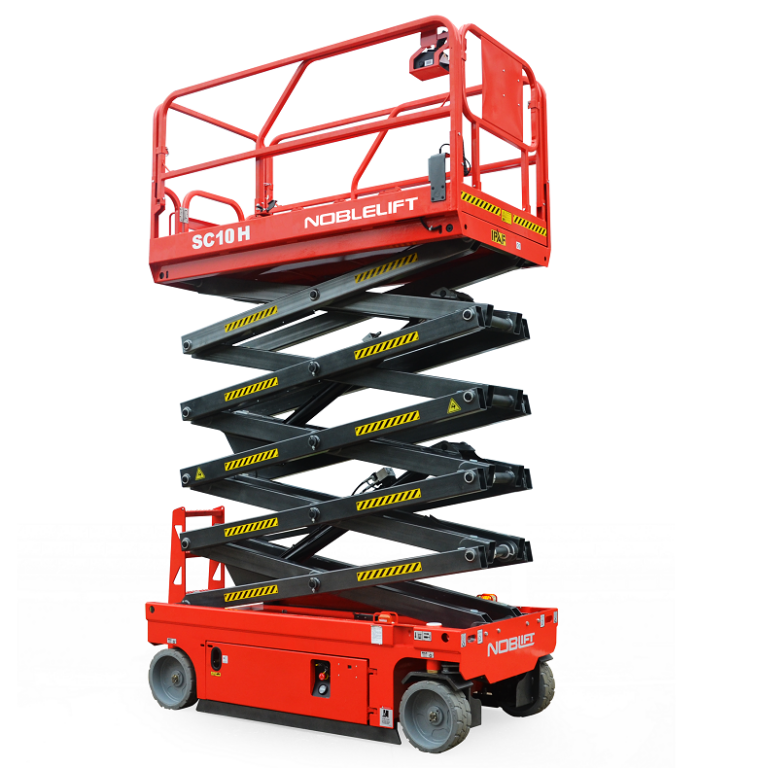Choosing the Right Reach Truck for Your Warehouse Needs
Selecting the right reach truck for your warehouse is a crucial decision that can significantly impact your operational efficiency, safety, and overall productivity. With various models and features available, understanding your specific requirements and the capabilities of different reach trucks can help you make an informed choice. Here’s a comprehensive guide to choosing the right reach truck for your warehouse needs.
Assessing Your Warehouse Requirements
Aisle Width and Layout
Narrow Aisles: If your warehouse has narrow aisles, look for a reach truck with a compact design and excellent maneuverability. These models are specifically designed to operate efficiently in tight spaces.
 Forklifts | China price Trader Manufacturer Wholesale scissor aerial platform Materials Handling Platforms sale Buy Online Industrial Equipment | Forklift
Forklifts | China price Trader Manufacturer Wholesale scissor aerial platform Materials Handling Platforms sale Buy Online Industrial Equipment | ForkliftRacking System: Consider the height and type of your racking system. Reach trucks with higher lifting capacities and extended reach capabilities are ideal for warehouses with high racks.
Load Capacity
Weight: Determine the maximum weight of the loads you need to handle. Ensure that the reach truck you choose can safely lift and transport these loads without compromising stability.
Load Dimensions: Evaluate the size and shape of the loads. Some reach trucks are better suited for handling bulky or irregularly shaped items.
Frequency of Use
Intensive Use: For high-frequency use, choose a reach truck with durable components and a robust build to withstand continuous operation. Consider models with advanced cooling systems to prevent overheating.
Moderate Use: For less intensive use, a standard reach truck model may be sufficient, providing a balance of performance and cost-effectiveness.
Key Features to Consider
Lift Height and Mast Type
Lift Height: Ensure the reach truck can reach the highest point in your racking system. Models with telescopic masts can offer higher lift heights.
Mast Type: Choose between single, double, or triple masts based on your lifting needs. Triple masts provide greater lift height but may be more expensive.
Power Source
Electric Reach Trucks: These are ideal for indoor use, offering quieter operation and lower emissions. Ensure you have appropriate charging infrastructure in place.
Battery Capacity: Consider the battery life and charging time. Lithium-ion batteries offer faster charging and longer life compared to lead-acid batteries.
Operator Comfort and Safety
Ergonomics: Look for features like adjustable seats, intuitive controls, and good visibility to enhance operator comfort and reduce fatigue.
Safety Systems: Modern reach trucks come with advanced safety features such as stability control, collision sensors, and emergency stop functions to ensure safe operation.
Maintenance and Service
Ease of Maintenance: Choose a reach truck with accessible components and straightforward maintenance procedures. Regular maintenance is key to ensuring the longevity and reliability of the equipment.
Service Support: Opt for a manufacturer or dealer that provides reliable after-sales support, including spare parts availability and professional servicing.
Making the Final Decision
Budget Considerations
Initial Cost vs. Long-Term Value: While it’s important to consider the initial purchase price, also factor in the long-term value, including maintenance costs, energy consumption, and potential productivity gains.
Financing Options: Explore financing options such as leasing or rental agreements, which can provide flexibility and preserve capital.
Test and Evaluate
Demo and Trial: Whenever possible, arrange for a demonstration or trial period to evaluate the reach truck’s performance in your actual working environment.
Operator Feedback: Involve your operators in the decision-making process. Their practical insights can be invaluable in selecting the right equipment.
Consult Experts
Professional Advice: Consult with industry experts or reach truck specialists who can provide tailored recommendations based on your specific needs and warehouse conditions.




